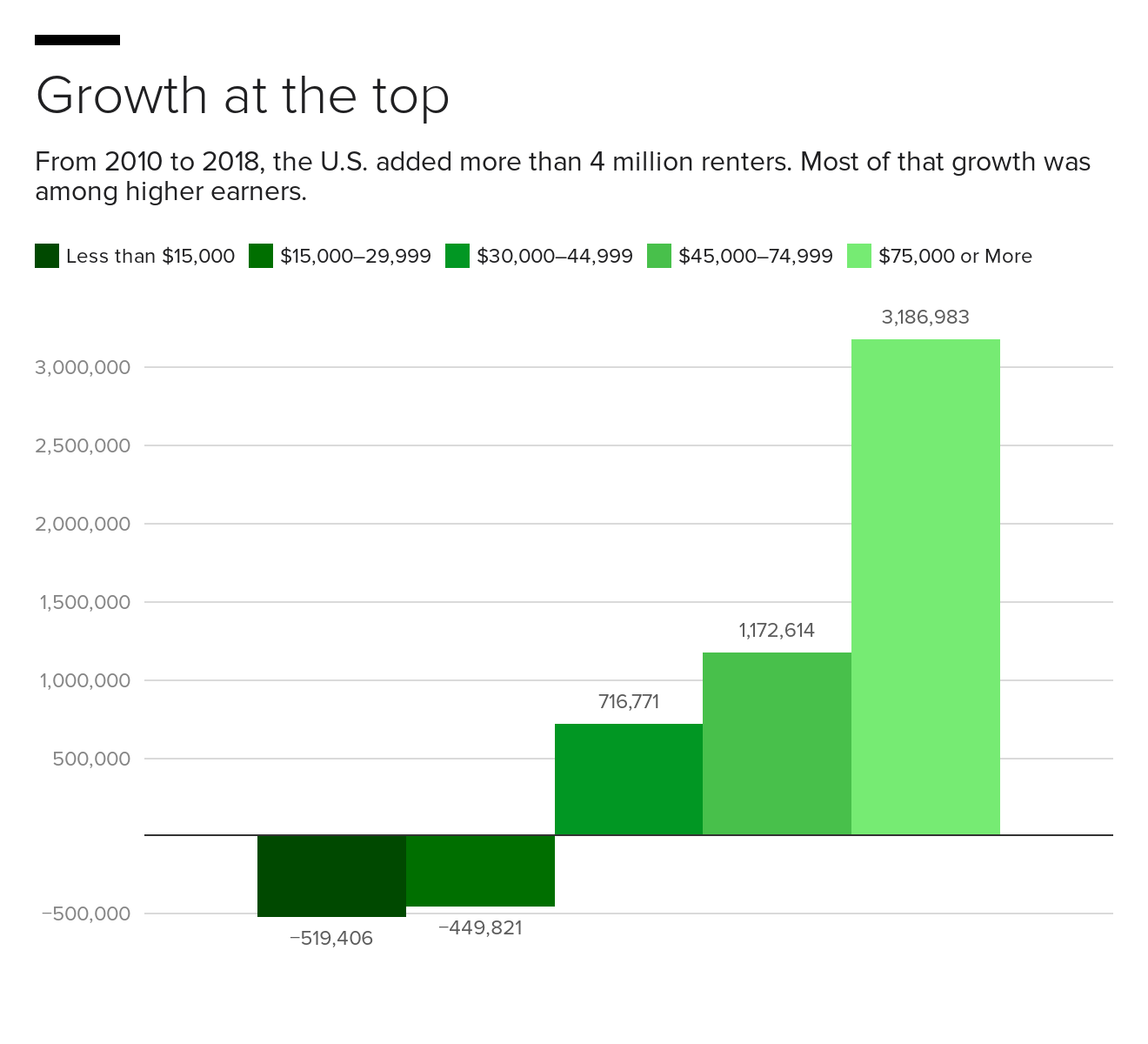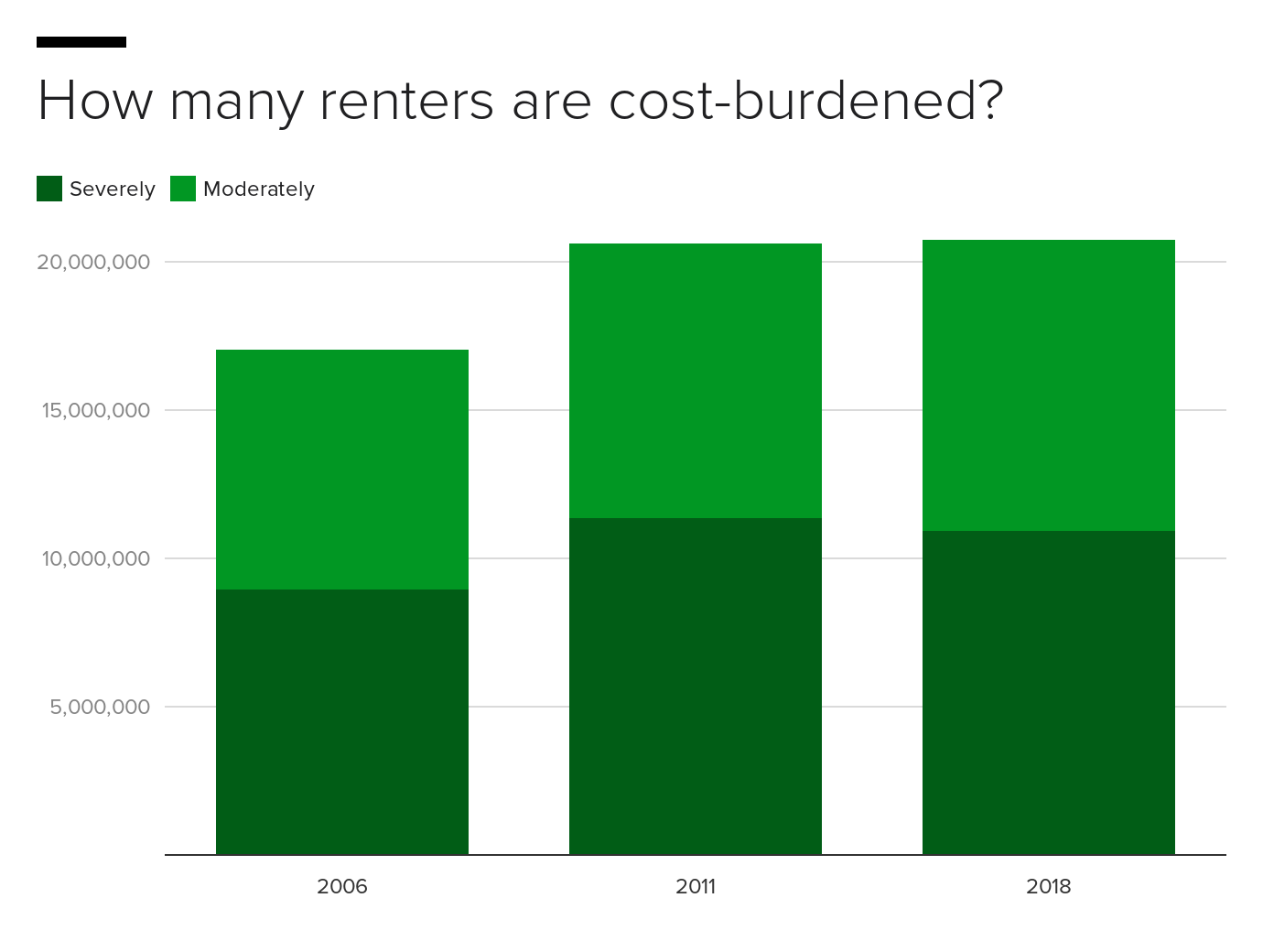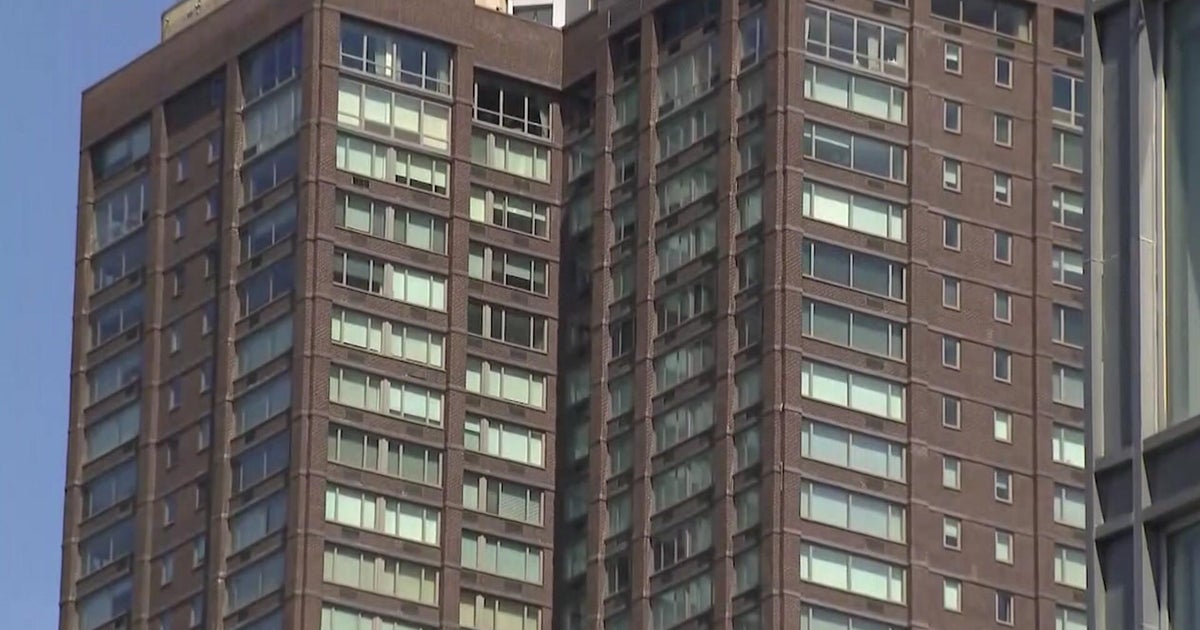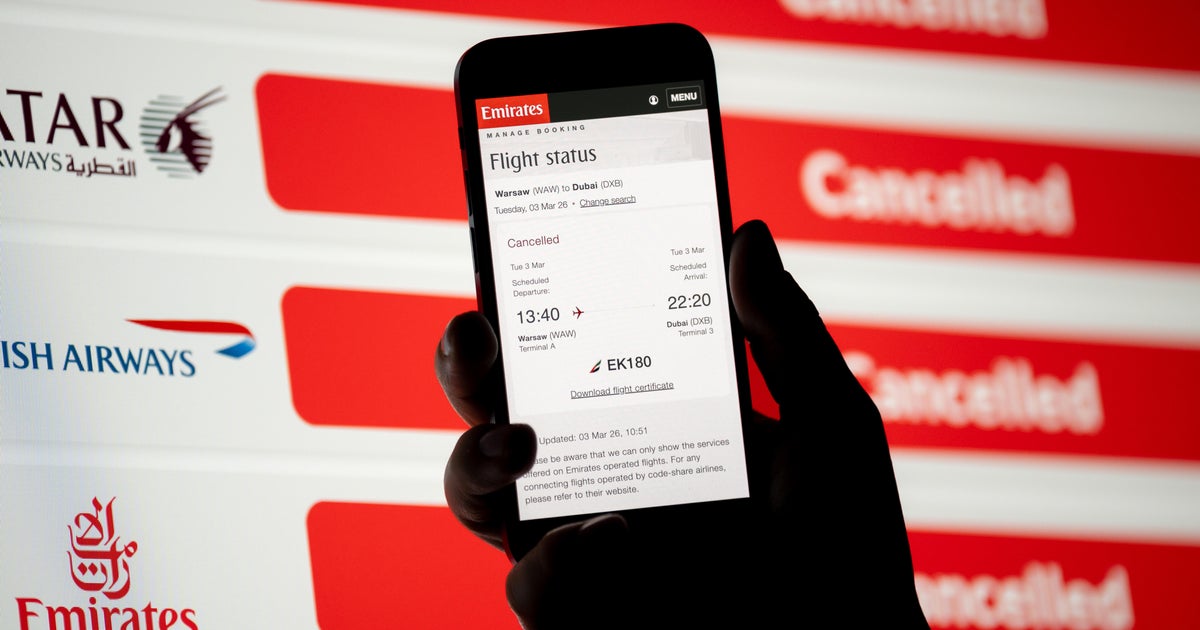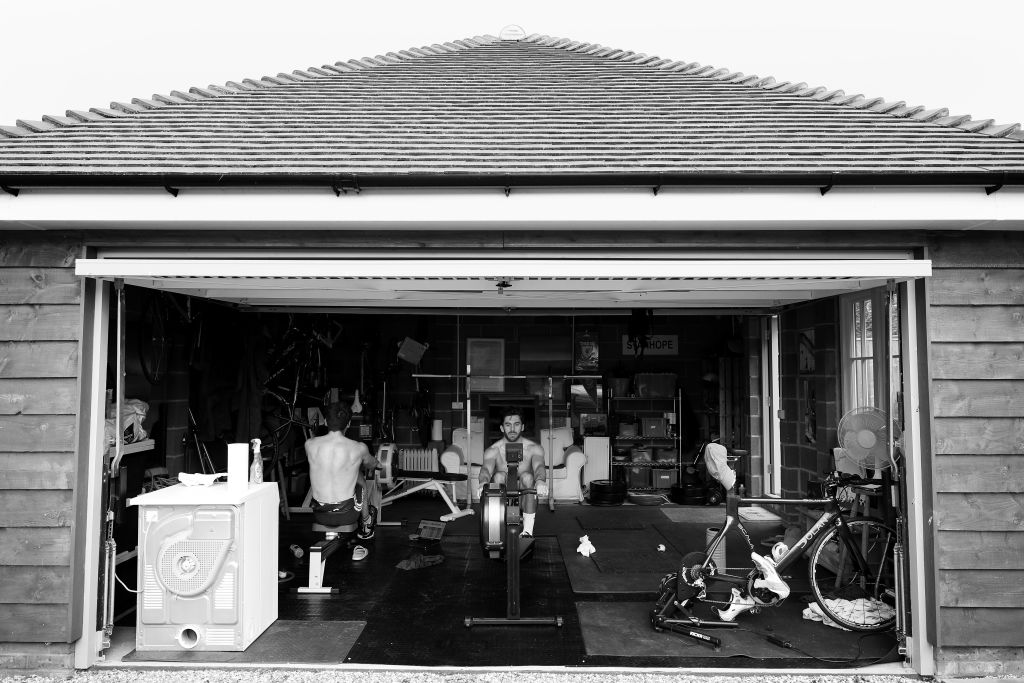America is increasingly a nation of renters, not homeowners
Many Americans, already struggling to find a home they can afford to buy, are increasingly at pains to find a place they can afford to rent. Tightening that squeeze: An influx of middle-class renters that is pushing up prices in much of the country.
"Ultimately, we're in a rental affordability crisis," said Whitney Airgood-Obrycki, a research associate with the Harvard Joint Center for Housing Studies.
A decade ago, more than two-thirds of people who rented an apartment or a single-family home in the U.S. earned less than $30,000 a year, a recent Harvard study shows. But beginning in 2010, with the economy still suffering the effects of the subprime mortgage crash, the share of middle-class renters surged.
As of 2018, 62% of renters, or 27.1 million people, earned middle-class incomes of between $30,000 and $75,000, according to the study. At least 10.3 million families with annual income of at least $75,000 are renting the roof over their head, a jump over previous years.
That shift came as the country started to rebound from the 2008 housing bust. Along with straining family budgets across the land, the ensuing recovery drove up home prices. In 2013, for example, households needed to earn at least $53,300 a year to afford buying a home – a number that jumped to $67,300 in 2018, according to National Association of Realtors. Meanwhile, worker wage gains haven't kept pace with home prices.
Other factors are also steering the middle class into rental housing, Harvard researchers found. Dwindling new-home construction nationwide has resulted in less inventory for would-be buyers. Relatedly, real estate developers in recent years have focused on building more upscale rental apartments.
In 2010, the average renter was a single person with a high school education who made less than $30,000 a year. By 2018, the renter profile had shifted to more college-educated, married couples.
"Renters today have higher incomes and are more likely to be families with children than in the past," the Harvard report states.
The average rent around the country is $1,473, up $390 over the past decade, according to RentCafe. And many families are feeling the pinch. Roughly 370,000 middle-class families spent more than 30% of their income on housing, a real estate threshold that housing experts say makes them "cost burdened."
Chris Herbert, the Harvard housing center's managing director, said real estate developers have built and filled plenty of upscale apartments but haven't offered enough cheaper units for low-income Americans.
Developers argue that it's expensive to construct new apartment buildings without charging rent that generates an acceptable profit for investors who have other options for their money.
"Our cost to build a six-story wood frame development in 2012 now is 70 percent more expensive in 2020," said Tony Barranco, senior vice president for Minnesota-based housing developer Ryan Companies.
Demand for apartments will continue to grow as the generation behind millennials leave their parents' nests and search for affordable housing.
The Harvard researchers said they hope their data will be used to craft new policies that encourage developers to offer more affordable housing and to convince state and federal lawmakers to pour more dollars into housing subsidies.
